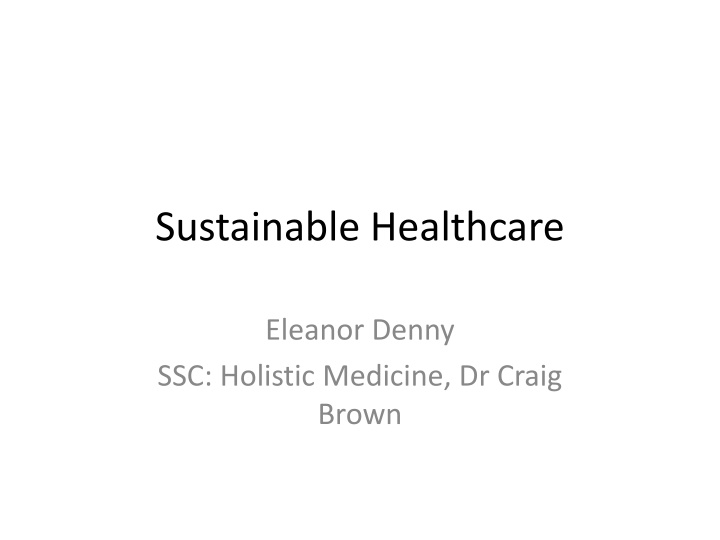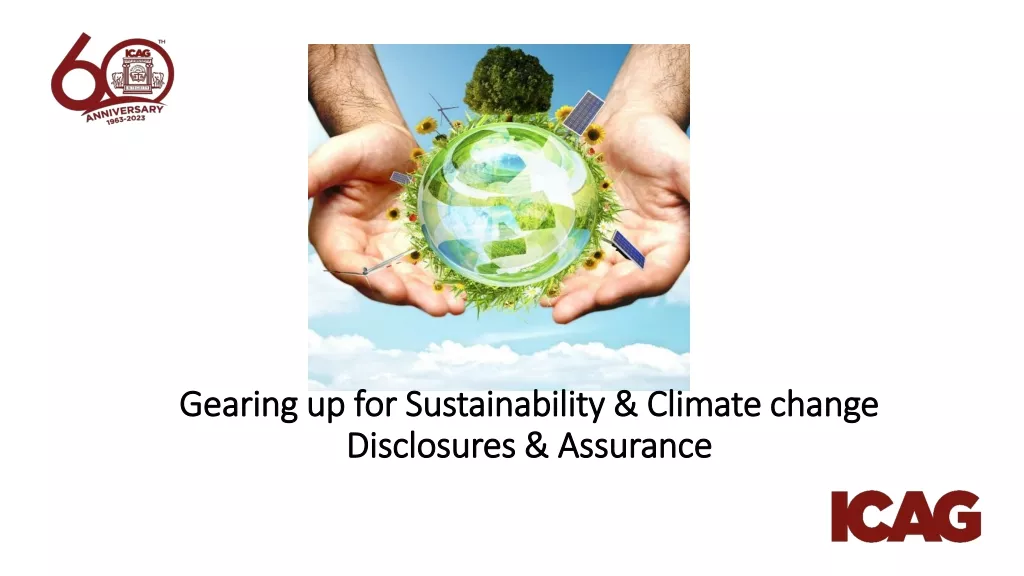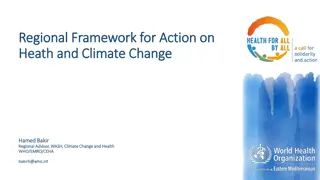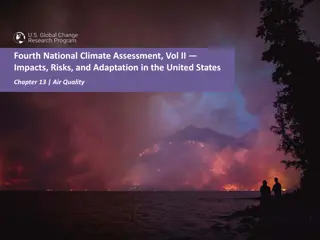Healthcare Sustainability and Climate Change Impact on Global Health
Explore the intersection of healthcare sustainability, climate change, and global health. Learn how climate change affects health, the disproportionate impact on different regions, and the NHS's efforts to reduce carbon emissions. Discover ways medical students and doctors can contribute to a sustainable healthcare system.
Download Presentation

Please find below an Image/Link to download the presentation.
The content on the website is provided AS IS for your information and personal use only. It may not be sold, licensed, or shared on other websites without obtaining consent from the author.If you encounter any issues during the download, it is possible that the publisher has removed the file from their server.
You are allowed to download the files provided on this website for personal or commercial use, subject to the condition that they are used lawfully. All files are the property of their respective owners.
The content on the website is provided AS IS for your information and personal use only. It may not be sold, licensed, or shared on other websites without obtaining consent from the author.
E N D
Presentation Transcript
Sustainable Healthcare Eleanor Denny SSC: Holistic Medicine, Dr Craig Brown
Overview On a global scale In the NHS In the specialties How can medical student and doctors help?
Why should I care about climate change? ...I want to be a doctor! Climate change has been identified as the greatest threat to global health in the 21st century (UCL/Lancet Commission, May 2009)
Global warming affects Global health Climate change is not just an environmental issue it is a health issue Factors affecting global health: Changing patterns of vector disease Water & sanitation Food Shelter Extreme events Population and migration
The relationship is disproportional Climate change effects on health will exacerbate inequities between rich and poor First world countries account for 90% of the worlds carbon emissions Third world countries will be most affected by poor health caused as a result
Global warming and the NHS The NHS is responsible for the admission of 18 million tonnes of CO2 every year That is 40% of public sector emissions in the UK! Not just heating and lighting Pharmaceutical manufacture makes up 20% of total emissions
Cutting emissions in the NHS Carbon reduction strategy to reduce carbon emissions by 80% over the next 30 years. Push to make environmental sustainability as important as financial sustainability. =
What can the NHS do to meet these targets? 1) Reduce and safely dispose of waste 2) Use energy efficiently and switch to renewable energy 3) Improve travel strategies 4) Purchase and serve sustainably grown food 5) Adopt greener building design and construction
Can the NHS set a good example to the rest of the UK? Hugely ingrained in society Large network of health care professionals Millions of people access the NHS regularly ....Spread the word!
Sustainable Specialities Green Nephrology Network: Leading specialty in sustainable health care Over 80% of kidney units have a rep Differences are made at a local level Inspiring other specialties to do the same
Conserving water in haemodialysis A local example from East Kent Hospitals University Foundation Trust Dialysis machines require 400l of water for a standard 4 hour session Water is intensely refined using reverse osmosis 2/3 of the water is rejected by this process Rejected water is now recycled into hospital toilets
Will ophthalmology be the next green specialty? Climate change predicted to have a significant impact on eye disease Many innovative ideas: Reusable, sterilized equipment Introducing mobile units Knee operated scrub taps And still only 6 months old!
What can medical students do? Find out more and spread the word Walk, cycle or car share to the hospital Keep clean stuff out of the orange bins Watch the Age of Stupid Calculate your carbon footprint Print on double sides when on the wards
References Mortimer, F. The sustainable physician. Clinical Medicine 2010, Vol 10, No 2: 110 11. Moynihan, R. The greening of medicine. BMJ 2012 Jan. Costello A et al. Managing the health effects of climate change. UCL/Lancet 2009; 373:1693-1733. http://sustainablehealthcare.org.uk/ Thanks to Frances Mortimer Medical Director of the Centre for Sustainable Healthcare for supplying leaflets























